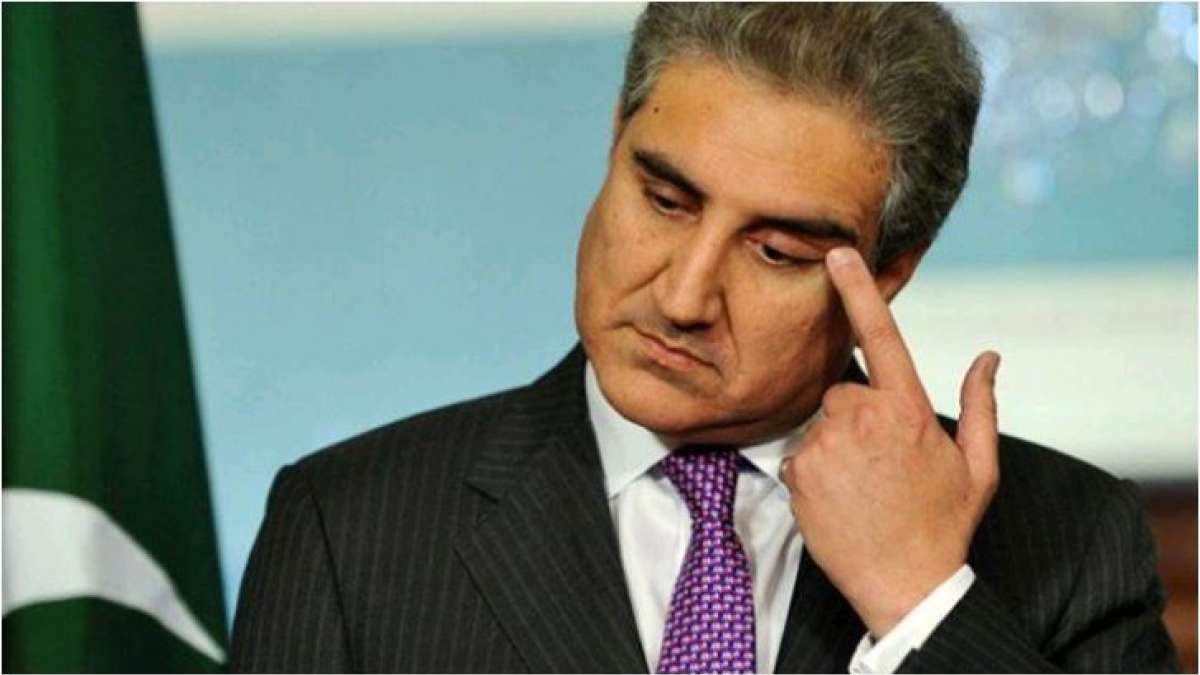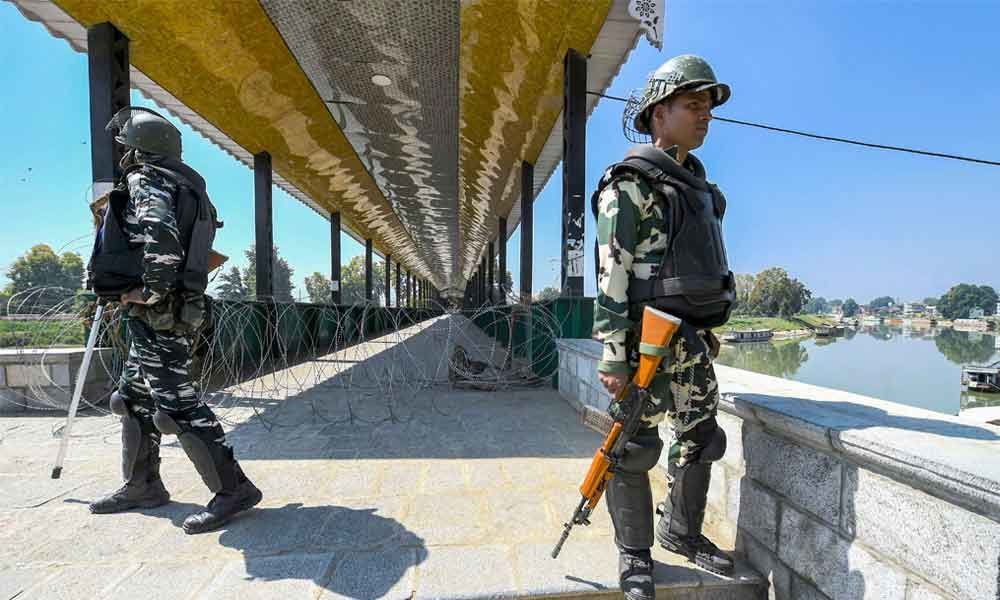At UNHRC India Wrecks Pakistan’s Kashmir Lies – Calls It A Failed State!
India’s strong rebuttal at the UNHRC exposes Pakistan’s propaganda on Jammu & Kashmir, highlighting its own human rights violations and economic turmoil.

In a strong rebuttal at the seventh meeting of the 58th Session of the United Nations Human Rights Council (UNHRC), Pakistan’s claims of human rights abuses in Jammu and Kashmir were categorically denied by India. India’s representative, Kshitij Tyagi, took a direct approach, calling Pakistan a “failed state” that depends on international aid for survival. In reaction to comments made by Pakistan’s Law Minister Azam Nazeer Tarar, who charged India with violating human rights in the area, this statement was released.
India’s Response at UNHRC
Pakistan’s persistent attempts to exploit international platforms to spread anti-Indian narratives while ignoring its serious internal problems were brought to light by India’s diplomatic reaction. Kshitij Tyagi, speaking on behalf of India’s Permanent Mission to the UN in Geneva, condemned Pakistan for spreading misinformation dictated by its military establishment.
“It is regrettable to see Pakistan’s leaders and delegates continuing to spread falsehoods handed down by its military terrorist complex. Pakistan is making a mockery of the Organization of Islamic Cooperation (OIC) by abusing it as its mouthpiece,” Tyagi said. He further added that Pakistan’s rhetoric “reeks of hypocrisy” as it diverts global attention from its governance failures and ongoing internal crises.
Pakistan’s Hypocrisy on Human Rights
India has always condemned Pakistan for abusing international forums to divert attention from its own abysmal human rights record. Tyagi underscored that Pakistan, with its record of minority persecution, political opposition suppression, and support for terrorism, has no moral authority to lecture on human rights.

“As a country where human rights abuses, persecution of minorities, and systematic erosion of democratic values constitute state policies, and which brazenly harbours UN-sanctioned terrorists, Pakistan is in no position to lecture anyone,” Tyagi asserted.
Pakistan has come under renewed international criticism for its human rights abuses, most notably against minorities like Hindus, Christians, Sikhs, and Ahmadiyyas. Cases of forced conversions, the use of blasphemy laws to target minorities, and state-sponsored extremism starkly contrast with Pakistan’s professed human rights campaign in Kashmir.
Jammu & Kashmir’s Development vs. Pakistan’s Claims
India denied Pakistan’s allegations by citing the impressive progress and stability that the Union Territories of Jammu & Kashmir and Ladakh have recently made. Tyagi pointed out that those territories’ political, social, and economic gains contradict Pakistan’s description of unrest.
Ladakh and Jammu & Kashmir Union Territories will always be an essential and inseparable component of India. J&K’s unprecedented political, social, and economic achievements in recent years are self-explanatory. These achievements reflect the faith reposed by the people in the government’s determination to restore normalcy to a terrorism-ravaged region supported by Pakistan for decades,” he said.
In Jammu and Kashmir, infrastructural development, governance, and investment have increased significantly since Article 370 was repealed in 2019. Numerous world leaders and agencies have recognized the region’s changes, defeating Pakistan’s complaints about human rights violations.
India’s Call for Pakistan to Address Internal Issues
Tyagi asked Pakistan to divert its attention towards solving its issues instead of indulging in an “unhealthy obsession with India.” He referred to Pakistan’s economic weakness, political crisis, and ultra-terrorism as the most critical issues that needed to be addressed urgently.

Instead of its ailing obsession with India, Pakistan should shift its focus to providing actual governance and justice to its people,” he said.
Pakistan is already facing acute economic hardship, with record-breaking inflation, a widening fiscal deficit, and reliance on International Monetary Fund (IMF) bailouts. The security situation in the country continues to be unstable, with persistent battles against militant organizations such as Tehreek-e-Taliban Pakistan (TTP) and Baloch separatists adding to the instability in the region.
India’s Consistent Stand at the United Nations
India’s latest declaration before the UNHRC followed a forceful remark made by Ambassador Parvathaneni Harish, India’s Permanent Representative to the UN, in an Open Debate in the United Nations Security Council on February 19. Ambassador Harish emphatically reiterated India’s stand on Jammu and Kashmir.
“The Deputy PM and Foreign Minister of Pakistan have referred to an integral and inalienable part of India, the Union Territory of Jammu and Kashmir, in his remarks. Harish reaffirmed, “The Union Territory of Jammu and Kashmir has been, is, and will always be an integral and inalienable part of India.”
International Response and Pakistan’s Diplomatic Isolation
Pakistan’s repeated efforts to bring up the Kashmir issue at international forums have mostly fallen through, with global players more and more identifying with India’s position on the issue. The United States, France, and Russia have consistently been in support of India’s territorial integrity and have accepted Pakistan’s role in promoting cross-border terrorism.
Pakistan has also been included in the grey list by groups like the Financial Action Task Force (FATF) due to its inability to stop the funding of terrorism. Despite repeated warnings and global pressure, Pakistan has not been able to eradicate terrorist networks based within its territory.
Future Implications
India has a consistent policy of exposing Pakistan’s hypocrisy on global security and human rights, as seen by its courageous move at the UNHRC. India hopes to be able to counter Islamabad’s campaign of propaganda effectively by placing the focus on the internal vulnerabilities of Pakistan and support for terror.
In recent times, India’s enhancing diplomatic role and robust economic position in the vicinity contrast Pakistan’s deteriorating international image. With the geopolitics of the region continuing to evolve, Pakistan’s attempts to internationalize the Kashmir question are going to face mounting opposition from the rest of the international world.
The Finish Line
India’s response in front of the UNHRC is an assurance of its commitment to defending its sovereignty and putting Pakistan’s red-faced hypocrisy in the public glare. India has been able to ward off Islamabad’s efforts to mislead the international community by projecting Pakistan’s domestic issues, its human rights record, and its dependence on foreign aid.
There is no question that Pakistan’s policy of defaming India on international forums would be a failure with a focus on diplomatic divergence. Rather than level false accusations against the country, good governance and domestic reforms within Pakistan need to be a priority. With each failed attempt to sway global perception, the image of Pakistan is further tainted in the view of the global community.




